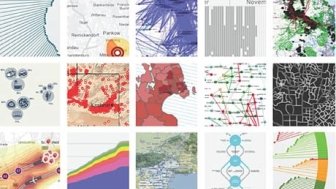Lea Shanley
Former Senior Program Associate
Professional Affiliation
Co-Executive Director of the NSF South Big Data Innovation Hub
Expert Bio
Dr. Lea Shanley founded and directed the Commons Lab within the Wilson Center's Science and Technology Innovation Program from 2011-2014. Currently, Dr. Shanley is the co-Executive Director of the NSF South Big Data Innovation Hub, working to build transdisciplinary partnerships across sectors – including academia, private sector and government – to apply data science and analytics to real world challenges. She also is an Honorary Fellow at the Gaylord Nelson Institute for Environmental Studies (GNIES) at the University of Wisconsin-Madison.
From 2014-2015, Shanley served as a Presidential Innovation Fellow (PIF), working at NASA Headquarters to design and guide open science and innovation research strategies and launch new funding programs for planetary and Earth science. As founder and co-Chair of the Federal Crowdsourcing and Citizen Science Community of Practice, Shanley worked closely with the White House to shape the Memorandum on Crowdsourcing and Citizen Science, the Crowdsourcing and Citizen Science Act (Sec. 402 of the American Innovation Competitiveness Act of 2016), and other innovation policies, and to mobilize federal staff to build the Federal Crowdsourcing and Citizen Science Toolkit, resulting in CitizenScience.gov. This initiative was selected as one of four top finalists for the Harvard Kennedy School of Government Ash Innovations in Government Award in 2017.
While at the Wilson Center (2011-2015), Shanley founded and directed the Commons Lab, a $1.8 million research program funded by the Sloan Foundation, resulting in 19 publications identifying and prioritizing emerging research and policy challenges in crowdsourcing, social computing, and big data for disaster management, national security, and environment. These issues included data quality, privacy and security, intellectual property, and liability. Shanley also initiated the Federal Citizen Science Catalog, and is a founding member of the US Citizen Science Association.
In 2010, Lea was a Fellow on the Mapping Science Committee of the National Academy of Sciences, where she co-directed two consensus reports: Precise Geodetic Infrastructure: National Requirements for a Shared Resource; and New Research Directions for the National Geospatial-Intelligence Agency. Previously, Shanley served as an AAAS Congressional Science Fellow in the US Senate, where she helped to shape Sec 701 of the NASA Authorization Act of 2010 (Earth Science), resulting in the first National Civil Earth Observation Strategic Implementation Plans. Shanley also spent more than a decade at the University of Wisconsin-Madison, conducting participatory action research and collaborating with local, state and tribal governments to develop GIS-based decision support systems for disaster, coastal, and resource management, and co-founding the Wisconsin Geographic Information Coordination Council.
Shanley serves on the Board of Directors for the Citizen Science Association and on the advisory boards of the Macrosystems Great Lakes Ecological Observing Network (GLEON) Research Coordination Network, the European Union's Big Data Value Association, the PBS TV series The Crowd & The Cloud, the Consortium for the Valuation of Applications Benefits Linked with Earth Science (VALUABLES) led by Resources for the Future and NASA, and NASA’s Socioeconomic Data and Applications Center’s (SEDAC) User Working Group (UWG), operated by CIESIN at Columbia University. Her work has appeared in the media, including the White House Blog, Fast Company, The French Associated Press, the National Journal, Slate, The Daily Beast, Vice/Motherboard, NextGov, GovLoop, TechPresident, TechCrunch, C-SPAN, and the Canadian Broadcasting Company’s The National. Shanley holds a PhD in Environment and Resources, with a focus on Geographic Information Science and remote sensing, from the University of Wisconsin-Madison, and is a recipient of the 2017 GNIES Alumni Award.
Recent Publications
McKinley, D. et al (2016). Citizen Science Can Improve Conservation Science, Natural Resource Management, and Environmental Protection. Biological Conservation. 208 (April 2017): 15-28. http://dx.doi.org/10.1016/j.biocon.2016.05.015
McKinley, D., et al. (2015). Can Investing in Citizen Science Improve Natural Resource Management and Environmental Monitoring? Issues in Ecology, Fall 2015. Report Number 19. http://www.esa.org/esa/expanding-the-reach-of-environmental-research-with-citizen-science/
Craglia, M. and Shanley, L. (2015). Data Democracy – Increased Supply of Geospatial Information and Expanded Participatory Processes in the Production of Data. Invited paper for NASA-sponsored workshop Assessing the Socioeconomic Impact and Value of Open Geospatial Information, to be held October 28-29, 2014 in Washington, DC. And published to International Journal of Digital Earth. 8:9, 679-693, DOI: 10.1080/17538947.2015.1008214.
Michelucci, P., Shanley, L., Dickenson, J., and Hirsh, H. (2015). A U.S. Research Roadmap for Human Computation. Washington, DC: CCC/Computing Research Association (NSF-sponsored).
McDonald, D.W., Ackley, D.H., Bryant, R., Gedney, M., Hirsh, H. and Shanley, L. (2014). Antisocial computing: exploring design risks in social computing systems. Interactions 21, 6 (October 2014), 72-75. DOI=10.1145/2675705
Shanley, L., Burns, R., Bastian, Z., Robson, E. (2013). Tweeting Up a Storm: The Promise and Perils of Crisis Mapping. Journal on Photogrammetric Engineering & Remote Sensing. October 2013.
Insight & Analysis by Lea Shanley
Filter
- Past event
- Citizen Science
The Role of Citizen Observatories and the Crowdsourcing Community in GEOSS
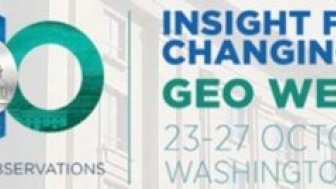
- Publication
- Governance
Crowdsourcing, Citizen Science, and the Law: Legal Issues Affecting Federal Agencies
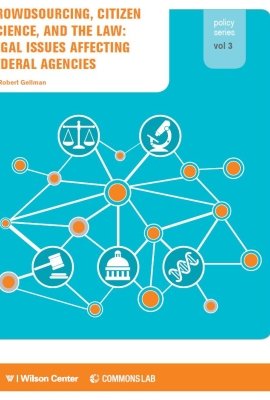
- Publication
- Governance
Typology of Citizen Science Projects from an Intellectual Property Perspective
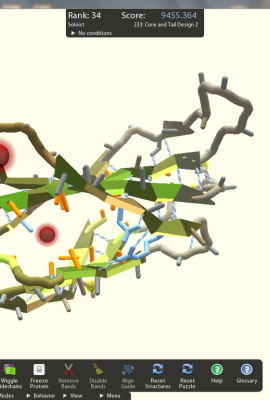
- Publication
- Governance
Citizen Science and Policy: A European Perspective
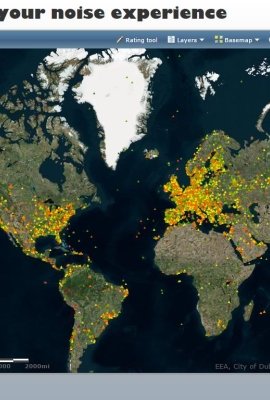
- Video
- Security and Defense
Earning the Trust of “Digital Natives”

- Publication
- Science and Technology
Agency Liability Stemming from Citizen-Generated Data
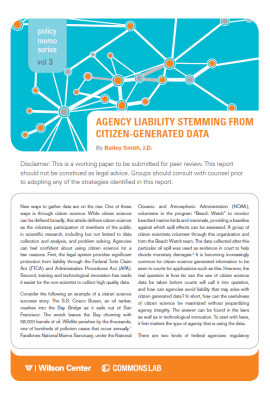
- Past event
- Governance
The National Plan for Civil Earth Observations
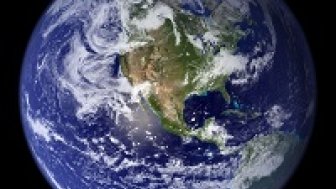
- Past event
- Geoeconomics
Data Journalism and Policymaking: A Changing Landscape
